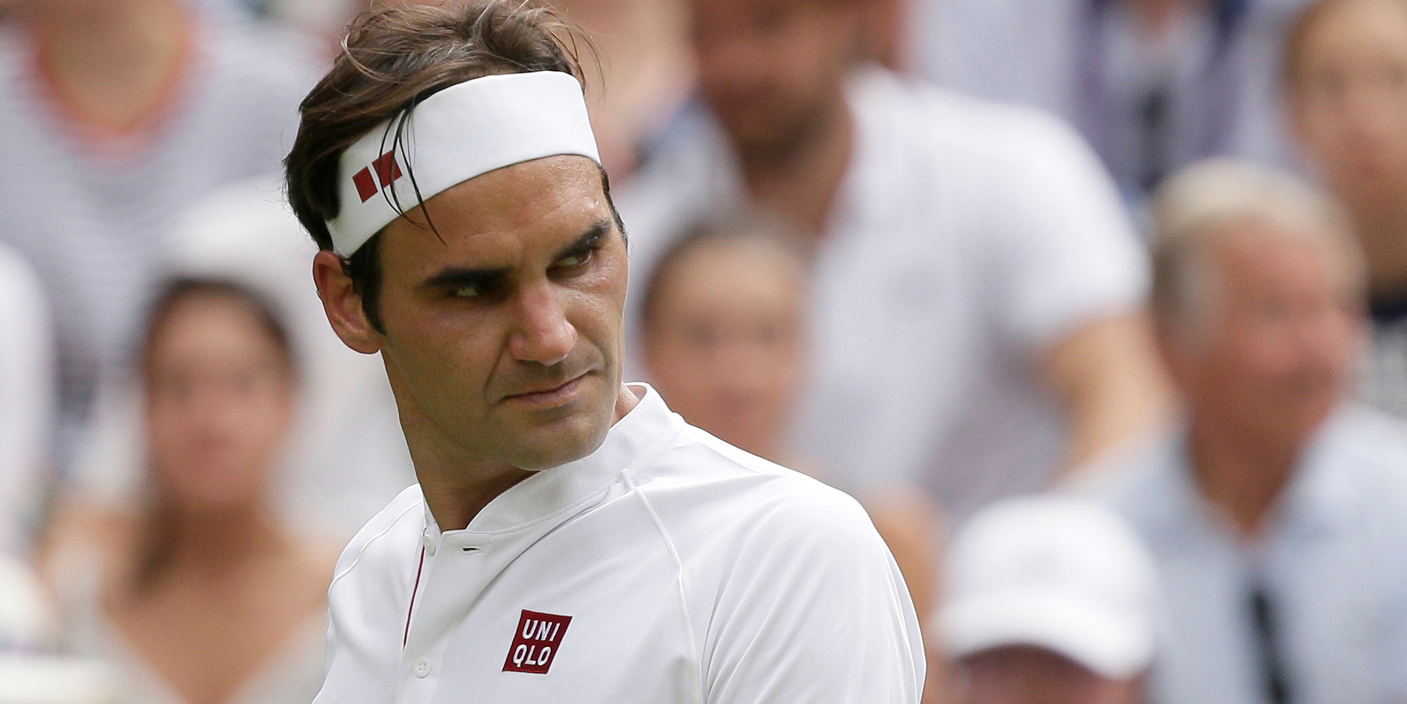- Roger Federer advanced on Monday to the Wimbledon quarterfinals and is three matches away from a second straight title.
- Federer has now won 32 straight sets at Wimbledon, two shy of his career best in 2005-06.
- Federer has never been more efficient, and because of his dominance, is well-rested heading to the stretch run of the tournament.
In beating France’s Adrian Mannarino in straight sets, 6-0, 7-5, 6-4, on Monday, Roger Federer faced a situation he hasn’t seen throughout Wimbledon this year – break point.
Worry not, Federer escaped and continued a roll through the tournament that has seen him play as close to his peak as ever.
Federer is yet to drop a set in Wimbledon this year. He’s now won 32 straight sets, two shy of his career best in 2005-06, according to The Guardian. He hasn’t dropped serve since last year’s semifinals, per The Guardian.
The game appears to be as easy as ever for Federer, who’s efficiency on the court has only increased with age. Even at 36 years old, Federer seems to be toying with opponents when he’s on the court.
After beating Jan-Lennard Struff of Germany in the Round of 32 on Friday, Federer discussed deploying his "SABR" ("Sneak Attack By Roger") move, in which he charges the net after a serve to dictate the pace and catch opponents off-guard. Federer made it sound as though the mental part of the game is the only challenge he has at the moment.
"I'm happy I did it. I'm happy it worked," Federer said of scoring a point on Struff with the SABR shot. "After that, I feel like I got, how do you say, there is a buzz for me. It just helps me with keeping it exciting for me, as well ... That's always the idea for me in practice or matches, keep it entertaining, keep things going. I don't know, I always look for new ways to win the point."
In the Round of 64, while cruising to 6-4, 6-4, 6-1 win over Lukas Lacko, Federer appeared to show off some of the different ways to win points to which he alluded.
"Someone's going to get angry at him for doing this," the announcers commented after the point.
Federer's late-career resurgence appears to be focused on efficiency and decision-making. His decision to skip the French Open this year, for instance, helped him keep his legs for Wimbledon. He rarely drops service and tends to win points on the first serve rather than wasting effort and going to a second.
And now, heading into the quarterfinals, Federer hasn't had to waste time playing needless sets. His game has perhaps never been smoother or more efficient, and that's bad news for the rest of the field.

